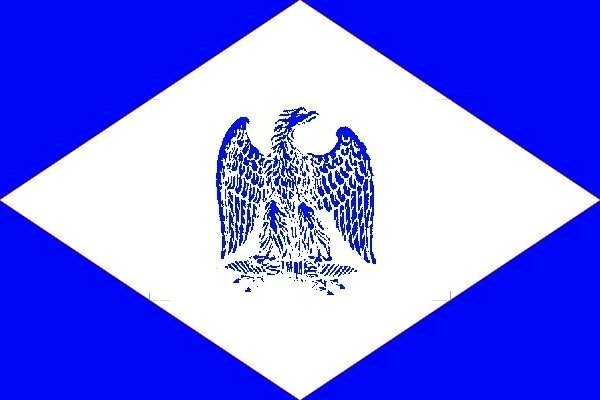
MOUVEMENT BONAPARTISTE – BONAPARTIST MOVEMENT
TOUT POUR ET PAR LE PEUPLE – EVERYTHING FOR AND BY THE PEOPLE
« Pour l’Honneur de la France, pour les intérêts sacrés de l’Humanité – For the Honour of France, for the sacred interests of Humanity »
(Napoléon le Grand, le 17 ventôse an VIII – Samedi 8 mars 1800 – Napoleon the Great, 17th of Ventôse Year VIII – Saturday 8th March 1800)
♔♔♔♔♔♔♔♔♔♔♔♔♔♔♔♔♔♔♔♔♔♔♔♔♔♔
ON NAPOLEONIC IDEAS
BY
NAPOLEON III, EMPEROR OF THE FRENCH
Translated from the French
by Paul-Napoléon Calland, President of the Bonapartist Movement, and published in French and English in honour of the two hundred and fiftieth anniversary of the birth of Napoleon the Great, on the Fifteenth of August, 2019.
Traduit du français par Paul-Napoléon Calland, Président du Mouvement Bonapartiste, et publié en français et en anglais en l’honneur du 250e anniversaire de Napoléon le Grand, le 15 août 2019.
 CHAPTER IV : EXTERNAL MATTERS / QUESTION ÉTRANGÈRE
CHAPTER IV : EXTERNAL MATTERS / QUESTION ÉTRANGÈRE
THE EMPEROR’S OFFERS OF PEACE WITH THE BRITISH EMPIRE
All our wars came from England. She never wanted to hear any proposition of peace. Did she believe that the Emperor wished to ruin her? He never had such a thought. He never acted other than in reprisal. The Emperor esteemed the English people, and he would have made any sacrifice to obtain peace, any, except for those that would have compromised his honour. In 1800, the First Consul wrote to the king of England – “The war which, for eight years, has ravaged the four quarters of the world, must it be eternal? Is there thus no way to an understanding? How can the two most enlightened nations of Europe, mighty and strong, beyond what their safety and independence demand, sacrifice to ideas of vain grandeur the welfare of commerce, internal prosperity, the happiness of families? How can they not sense that peace is the first of needs, as well as the first of glories?”
In 1805, the Emperor addresses, to the same sovereign, the following words – “The world is large enough for our two nations to be able to live in it, and reason is mighty enough for us to find the means of reconciling all, if on one side and the other there is the will to do so. Peace is the wish of my heart; but war has never been contrary to my glory. I beseech Your Majesty to not refuse himself the happiness of making peace yourself”.
In 1808, at Erfurt, Napoleon joins with Alexander to induce the British Cabinet to ideas of conciliation.
Lastly, in 1812, when the Emperor was at the zenith of his might, he makes once more the same propositions to England. Always he asked for peace after a victory. Never would he have consented to do so after a defeat. “A nation”, he said, “finds more men more easily than she regains her honour”.
It would be too painful to think that war was only maintained by impassioned hatreds or the interests of parties. If so brutal a combat lasted for so long a time, it is without a doubt because the two peoples knew each other too well, and that each government was reciprocally mistaken as to the condition of their neighbour. England perhaps saw no more in Napoleon than a despot oppressing his country, and exhausting all its resources to satisfy his warlike ambition; she was unable to admit that the Emperor was the elect of the people, all of whose material and moral interests he represented, for which France had fought since 1789. We could even suggest that the French government, confusing the enlightened aristocracy of England with the feudal aristocracy that weighed upon France before the Revolution, believed itself faced with an oppressive government. But the English aristocracy is like the Briareos of Greek legend; it is linked to the people by a hundred thousand roots; it has obtained of them as many sacrifices as Napoleon obtained efforts from the French nation.
And, what is worthy of note in the struggle of these two countries, is that the rivalry of England put, for a moment, Napoleon in a position to carry out, against this power, a European project alike to the one that Henri IV would have accomplished against Spain, in harmony with Elizabeth, if the blade of an assassin had not taken this great monarch from France, and from Europe.







Ping : DES IDÉES NAPOLÉONIENNES (CHAPITRES) – ON NAPOLEONIC IDEAS (CHAPTERS) | Mouvement Bonapartiste